AH WHICH DON DIS?
All hell broke loose at a popular Negril weekend event last week after a woman, said to be the girlfriend of a popular Montego Bay don, was doused with urine.
Information reaching THE STAR is that the don’s henchmen disrupted proceedings at the venue in order to defend their boss’ woman’s honour.
At the end of the melee, two security guards were injured, after they attempted to get things under control, but were attacked and beaten by the don’s henceman, THE STAR understands.
The Negril police told THE STAR that the incident was brought to their attention and that a formal report has been made. They were, however, reluctant to say how far investigations have reached.
Information reaching THE STAR is that the two injured security personnel were part of a collection of specially-contracted guards for the Negril weekend event.
Our news team was informed that the altercation developed after the don’s girlfriend was doused with urine at a party.
One man claiming to be a witness, revealed how the melee began. “So dem (urinate) up the big man woman under the pretence say a water dem a throw. When the big man hear wah gwan, him did bex so fi him boys dem go defend it,” explained the alleged witness.
THE STAR understands that things took a different turn when security personnel attempted to quell the friction.
Our news team was informed that members of the don’s entourage turned their anger on the guards and assaulted them, causing serious injuries.
The head of the security squad downplayed the incident. “It was just a little tussle and two guards got injured while trying to prevent a minor incident from escalating,” he said.
But another guard at the venue told THE STAR, “Well as far as me see, our squad a try part the fight and one side a behave like dem nah tek no talk. One of the patrons had a bottle and the other had a gun”.
The guard continued: “Mi get fi understand dat a don from MoBay girl get diss and fi him boys dem wanted to diss back somebody in return. So although we a try squash the friction before things got out of hand, my co-worker dem get hurt in two separate attacks from the same clique. After everything, dem get medical attention then go report it at the Negril Police Station”.
He said one of the guards was attacked by the poolside, and the other beside a bridge located inside the venue. It is understood that one received a broken finger and the other was hit in the head and got nine stitches.
ANDY YOU AND PETRONE MARRIED?
This is serial womaniser now settler…Andy 5 star and his settle-ee…Petrone..
PATOIS NOW
PETRONE EVERY PICTURE YUH TEK YUH FINGER DASH UP ..LAST WEEK WAS DI BATTAM AND NOW DI FINGER…A BETTA YUH DID POINT OUT FI GIG HAIRSTYLE MEK A WORTHWHILE HAIRDRESSER SI YUH AND TEK UP DI LIKKLE RERK….ONE WIG PASTEMENT CYAA LOOK SUH BAD..PETRONE DI HAIR A HURT MI AND A NUH MY HEAD IT DEH PAN..I CAN FEEL DI SCALP BLAZING FROM WHERE IM SITTING…AND MI DOE HAVE NO FIRE REPELLENT SINCE MI USE DI LAST AND OUT FOWL ESQUIRE HIM.
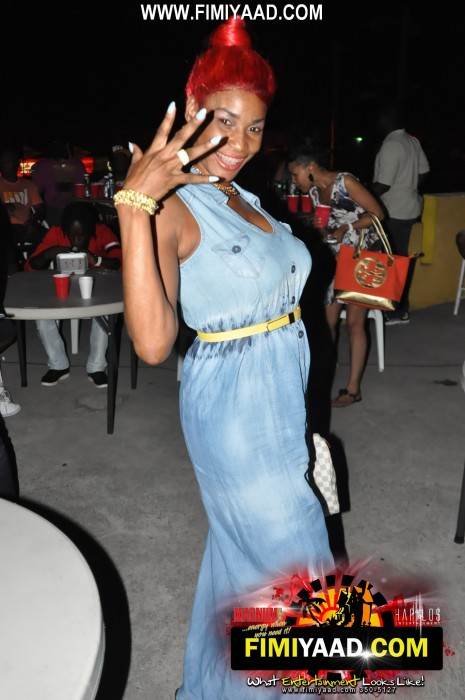

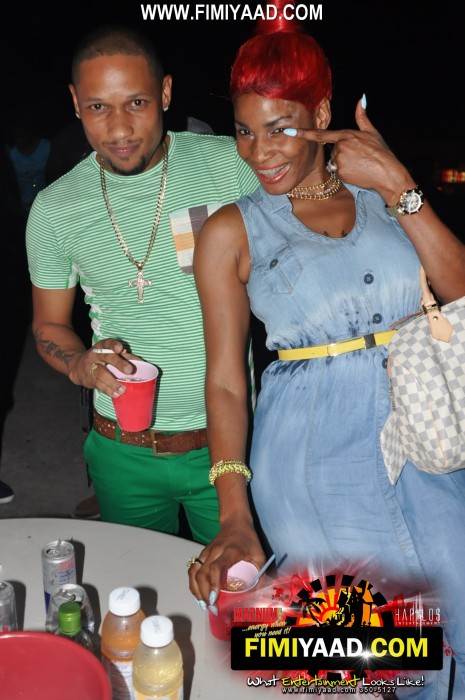
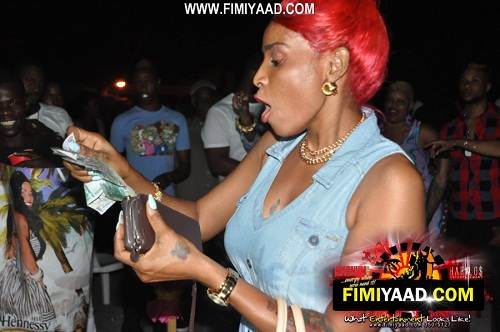
PLEASE READ
Doreen Lawrence: ‘I got quite emotional. I thought: hold it together’
The mother of the murdered teenager Stephen Lawrence on why she decided to carry the Olympic flag at the opening ceremony, and what has changed in the 19 years since her son’s death

-
- guardian.co.uk, Sunday 12 August 2012 20.00 BST
- Jump to comments (28)
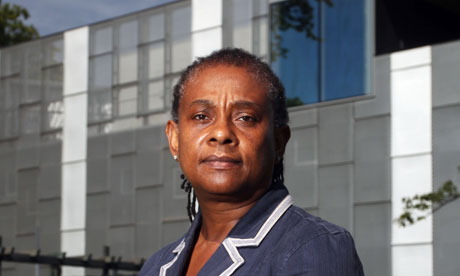
Looking back, it is hard to recall the trepidation with which we had all sat down to watch the opening ceremony of the Olympic games. On that evening 16 days ago, the astonishment of Danny Boyle’s triumph had grown and grown, until I didn’t think anything could surprise me. And then there before our eyes, leading out luminaries from Ban-Ki Moon to Muhammad Ali, carrying the Olympic flag towards the ceremony’s climax – suddenly there was Doreen Lawrence.
From London to Jamaica, family and friends did a double take in disbelief. The only two people in the world who had known she would be there were her surviving children, watching in the stadium. For many, myself included, that was the moment of surrender to tears. But as I watched it crossed my mind that somewhere in England, in two prison cells, two of the men who murdered her son were very probably watching too. The legacy of what they did with their friends 19 years ago was being witnessed by billions all over the world.
Lawence hadn’t been sure she should take take part when she was first approached. She spoke to Shami Chakrabarti, the director of Liberty, who had also been invited, and both wondered whether their activism could be compromised. “When you’re a campaigner, there are times you’re worried about where you place yourself.” In the end it was Lawrence who decided they had nothing to worry about.
“There are times when these things happen and ordinary people don’t get involved. It’s always a celebrity. They’re up there somewhere, and the people are down there, and it’s like never the two will meet. So I saw it as an opportunity to represent the community as a whole, so people can see that we are a part of society, and not just on the fringe. And within the black community, many times you don’t get an opportunity to do anything like that.”
Lawrence still couldn’t quite believe Boyle even knew who she was. Her world is the charitable trust in south London she founded in her son Stephen’s name, and when we meet there she conveys an immediate air of unimpressionable, quiet self‑possession. “Danny Boyle is a name from directing a big movie where he got an Oscar. I kept thinking: he doesn’t know me from Adam.” As it turned out, though, his preparations sound less like a slick Hollywood operation than a charmingly British muddle.
Most of the Olympic flagbearers gathered at a hotel the day before the event, to set off for the rehearsal together. “We were having a nice chat about what each of us had done over the years, quite happy sitting there chatting, while aides were running around looking for people.” Eventually, it dawned on them that the veteran Ethiopian runner Haile Gebrselassie was outside sitting in the coach. “Over an hour this poor man and his dog were sitting out there, when they could be inside the hotel where it was a nice and cool, having a drink of water or something. We had no idea.” She chuckles. “You think it will all be precision, like an army, but it wasn’t like that at all.”
When their coach got to the Olympic park two hours late they weren’t allowed in because they didn’t have their passes. Finally they got to their dressing rooms, which had code names on the doors to keep their identities secret. “Mine was London Bridge. I thought, how appropriate, because we used to have an office in London Bridge.” Only when they were shown how to carry the flag, which turned out to be trickier than she’d imagined, and made her thumb go numb, did the magnitude of the occasion begin to sink in.
It still didn’t fully hit her until the following night. “That was when the reality really struck.” Hadn’t she thought about the billions who would be watching? “No I didn’t. I just didn’t, I didn’t. But then suddenly, it was, ‘Oh God.'” As the flagbearers were called into makeup, “we were all very quiet. We weren’t very chatty.” Then it was a race to get changed, and a panic to get the white linen outfit on without smearing makeup on it. “It was at that point, yes, I was getting a bit nervous. I got quite emotional. And I’m just thinking: ‘Hold it together, hold it together, hold it together.” Ban-Ki Moon only arrived at the last minute, slipping into position just as they were lining up. Then Lawrence led them out into the stadium.
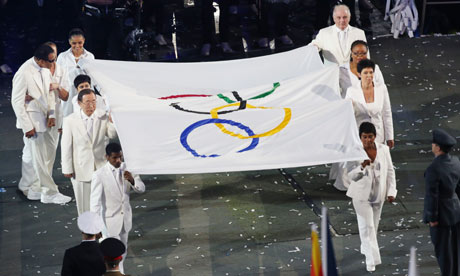 Doreen Lawrence, bottom right, with the Olympic flag at the opening ceremony. Photograph: Rex Features”I think, sometimes, I don’t take on board the significance of certain things, because so many things have happened to me in my life,” she reflects quietly now. There’s nothing breathless about her recollections of the night – no giddy wonder or excitement – but I suspect this is about as effusive as Lawrence ever allows herself to be.
Doreen Lawrence, bottom right, with the Olympic flag at the opening ceremony. Photograph: Rex Features”I think, sometimes, I don’t take on board the significance of certain things, because so many things have happened to me in my life,” she reflects quietly now. There’s nothing breathless about her recollections of the night – no giddy wonder or excitement – but I suspect this is about as effusive as Lawrence ever allows herself to be.
“It wasn’t until I thought to myself, all the countries’ flags have gone past and this is like the pinnacle of everything. The Olympic flag. This is the most important flag that’s going to be raised. This is going to be the most important thing, and here I’m the one helping to carry it.”
Nineteen years ago, Lawrence was an ordinary mother from Jamaica, raising her sons and daughter with her husband, Neville, in the humdrum anonymity of any family. Since Stephen’s murder, and the spectacular failure of the initial police investigation into it, she has become not just a powerful public campaigner but a kind of national talisman – the repository of both our shame and our hope. It’s an identity she has had to get used to – but never quite come to terms with.
“People tend to struggle with me to get me to a position where I accept that this is it, and this is my life. But I’d still rather not be there, if you understand what I mean. I’ve always struggled with it. There are times when I’ve felt, ‘OK, well this is it,’ but then the minute I start saying, ‘Yes, I’m fine with it’, I seem to revert back to thinking: ‘I can’t take it’. And I’m not sure when I would ever accept it.”
On the night Lawrence lost her son, she didn’t realise she would also lose her privacy. She had no idea that almost two decades later, people on the street would still whisper, ‘Oh that’s Doreen Lawrence’, as she passed. “I don’t turn around. I just keep walking.” She always tries to smile – “Because people are pleased to meet me, and I’ve got to understand that from their point of me. But for me I don’t see that great significance.”
At a recent family function a young girl approached and told her she’d done an A-level project about Stephen and her. “And I was just thinking: ‘This is all I need just now.’ My privacy has been taken away from me – I can’t just be a face in the crowd – and I think that’s a sad thing. Because if the police had done their job on the night Stephen died, nobody would ever know who I am. I would have been forgotten about, and people would have moved on. But because of the struggle, and the fight for justice over the years, that hasn’t been possible.”
Had she known back then what her struggle for justice would cost her, would she still have campaigned? “If it means me having to do that in order to get justice for Stephen then yes, because my child is important to me. But I’d probably think quite hard about it, and think: ‘How do I protect myself?’ But it was just something that happened, and it rolled.” She has fought to protect her other children’s privacy, though – not least for fear that her remaining son could become a prize target for racists.
In the months and years following his death she found herself addressing senior politicians, police and others in authority. Back then she knew nothing of public advocacy, so I ask if she ever felt daunted, or even out of her depth. “I never had any of that, because I think I was too angry. My thought is, nobody’s born with a title – apart from the royal family and people like that. They’re just ordinary people, and that’s how I saw them. So when I speak to the prime minister, or the commissioner of police, that made no difference to me. A lot of people perceive that we, as ordinary people, should behave in a certain way; that we should be grateful that they make a point for us to come and see them. And I didn’t see it like that. The authorities seemed to think we were asking for something special, when we were just asking for what everyone else has. As far as I was concerned, someone’s taken my son’s life, and you were supposed to get justice for him, and you didn’t, so I want to know why. That’s how I saw it.”
The 1999 Macpherson report was supposed to be a watershed moment in British policing history. When Lawrence read all the reports earlier this year of police officers beating up young black men, and calling them “niggers”, did she wonder how much had really changed?
“I think their PR has changed quite a bit. All eyes are on them, so their language has changed. But the officers on the street, they haven’t changed.” She pauses to consider her words. “I can’t say that nothing’s changed because that wouldn’t be true. But when you still hear the same stories about individual families who are still experiencing racism, you question that. And they don’t know where to take their complaints, because they can’t take it to the police, because the police are the problem. So I hear it, and I question how we are going to move forward on this.”
In January this year, two of the five original suspects were finally convicted of Stephen’s murder. Having waited so long to hear the word, “guilty”, Lawrence at the time said she still couldn’t quite believe it. The verdict had eluded her family for so long, it had assumed in her mind an almost mythical quality – an impossible fantasy – so that when it finally happened, it was quite literally incredible. I wonder whether the convictions have yet become real for her.
“Well, we’re still in limbo, because of the appeals.” Both men, Gary Dobson and David Norris, have lodged applications for leave to appeal. “And you still don’t know what a judge is going to make of that.” She thinks the trial judge was deliberately accommodating towards the defence to make sure they could have no possible grounds for appeal – but until the ruling is delivered, she cannot relax.
When sentencing the pair, the judge took the unusual step of exhorting police to continue their investigation, until all of Stephen’s killers are brought to court. Does Lawrence think that will ever happen? As she considers her answer, indefatigability wrestles with pessimism in her expression. “Well, there are lines of inquiry. But there is a rumour that there are those in the police force who want to draw a line. That they don’t want to go any further. I think some of those officers have gone back to that place again where they don’t want to do anything else; that we should be grateful that we got this much. I’m sorry, but I don’t take that view. My son was killed by a group of men, and it is your duty and your responsibility that those individuals, regardless of their background and whoever they are, are caught. That’s what your job is, and it doesn’t matter how long it takes for you to do that.”
When the Lawrence family emerged from court following the two convictions, Stephen’s parents exchanged not so much as a glance. Their marriage was another casualty of his murder – as is the way with roughly half of all murdered children’s parents, a heartbreaking statistic I imagine she must have soon become aware of. I ask if she had once thought they could beat the odds.
“Yeah,” she says quietly. “Because I always said it’s family that’s important. That’s how I see it.” She says she read the recent interviewswith the parents of one of the Soham murder victims, who described their determination to remain together. “And it was quite heartwarming,” she adds softly. “I wish that was us.”
I think the Stephen Lawrence Charitable Trust represents her own signifier of survival. Among other things, the trust offers bursaries to ethnic minority youngsters to study architecture, the profession her son had been training for. The last Labour government provided financial support, but since the coalition took office it has offered not a penny of Home Office money. The home secretary, Theresa May, did pay the trust a visit, and Lawrence made its financial crisis clear to her.
“I said to her, a small organisation like us, we are desperately, desperately in need of money. We had 15 full-time staff; we’re now down to three, including myself. We get donations from ordinary people. But it’s really hard, it’s really hard. How long is it going to be able to survive? If we’re still here this time next year, it will be because of a miracle.”
Lawrence’s ex-husband, Neville, has moved back to Jamaica. Her two children are now grown up, and so today she lives alone. She saidrecently that her daughter keeps nagging her to try to start dating again, but somehow it just feels beyond her. For all Lawrence’s ambivalence about her public identity, thoughts of any personal life still seem to come second.
As a mother, she doesn’t even see that as a choice. She attended John Terry’s recent trial, and when I ask why she says simply: “I did that from one mother to another. Just to give Anton Ferdinand’s mother support.”
I’m curious to know how she feels about the parents of all the men accused of her son’s murder. There has been speculation that Norris and Dobson’s parents, having given alibis under oath for their sons that night, may be tried for perjury. Would Lawrence like to see them prosecuted?
“Definitely. Definitely.” Had it been her own son accused of murder, she just cannot believe she would have tried to protect him from justice. “I couldn’t live with myself, because that would be living a lie. My conscience wouldn’t allow me to – and my children know this.”
I ask if she thinks they truly believe in their sons’ innocence. She sighs.
“Well I think those types of people, they’re…” She breaks off. After a long pause, “It’s like they feel that they have the right, or their sons have the right, to do whatever they want to do.”
• You can donate to the Stephen Lawrence Charitable Trust atstephenlawrence.org.uk or by phoning 020 8100 2800.
****RULES**** 1. Debates and rebuttals are allowed but disrespectful curse-outs will prompt immediate BAN 2. Children are never to be discussed in a negative way 3. Personal information eg. workplace, status, home address are never to be posted in comments. 4. All are welcome but please exercise discretion when posting your comments , do not say anything about someone you wouldnt like to be said about you. 5. Do not deliberately LIE on someone here or send in any information based on your own personal vendetta. 6. If your picture was taken from a prio site eg. fimiyaad etc and posted on JMG, you cannot request its removal. 7. If you dont like this forum, please do not whine and wear us out, do yourself the favor of closing the screen- Thanks! . To send in a story send your email to :- [email protected]
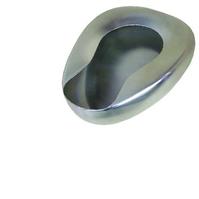
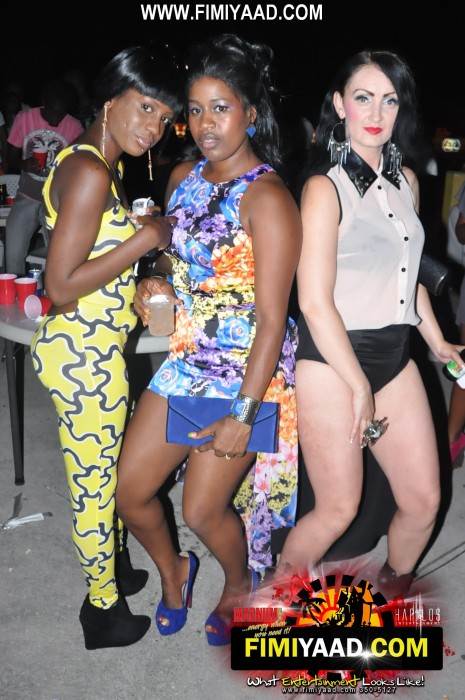
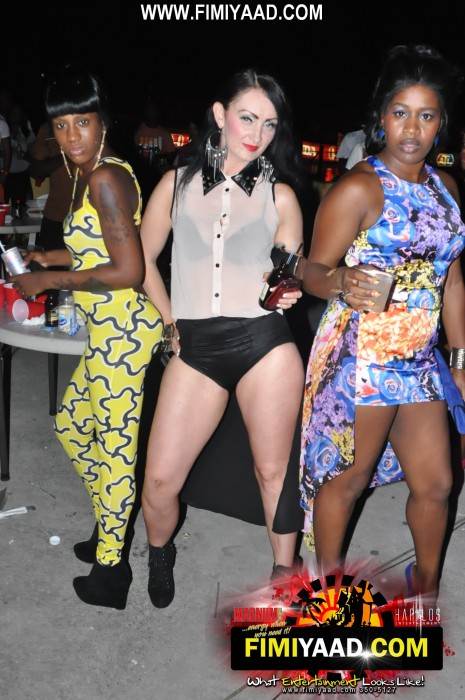
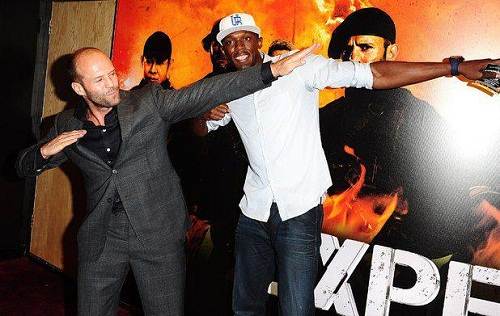

Recent Comments